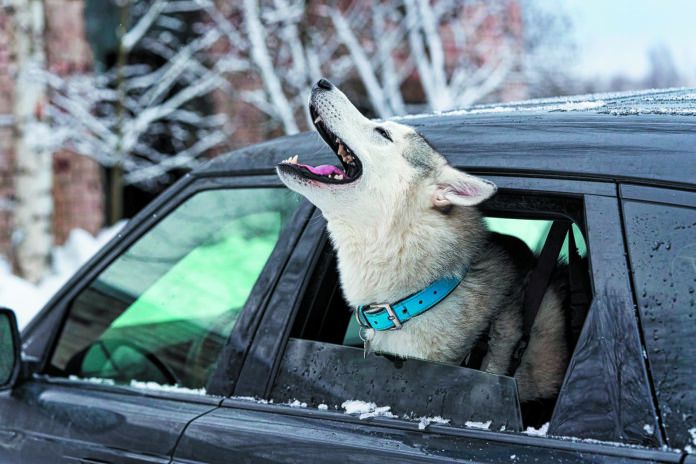Answer this question. A dog howls to say:
- A) I’m over here.
- B) Eureka, I found something good!
- C) Stay back!
- D) Gee, that siren has a high-pitched sound!
- E) Any of the above.
- F) None of the above.
- G) Some of the above.
The correct answer appears to be E: any of the above. We say “appears to be” because the reasons dogs howl have not been entirely nailed down. It does seem, though, that there are patterns to canine howling that correspond to these different categories. And there are actually even more reasons than these for why a dog may howl, including communicating that he has been wounded or simply that he is feeling bored or lonely and wants some attention.
What we do know for sure is that the behavior is a throwback to a dog’s wolf ancestors of the distant past. Wolves tell each other their location through howling. A howl covers a number of pitches in one vocalization, which helps carry sound over longer distances. Wolves also howl to defend their territory. Why howling seems to occur in dogs for so many other reasons is up for debate. But here are some observations researchers have made.
High-pitched sounds. It’s not just the wail of a police, ambulance, or fire truck siren that gets some dogs going. It’s also high-pitched musical instruments. Something about those noises makes certain dogs “respond in kind.”
I’m over here! Just like wolves, a dog may want to signal his whereabouts to his canine brethren. Sometimes a dog may signal where he is to his human brethren, too. Some dogs howl when they hear their family members pull the car into the driveway. “I’m in the house — at the back door.”
I need some interaction. Howling gets people’s attention — a good ploy when your dog wants to play with you, or just connect through some petting or stroking.
I’m scared to be alone. This affects your neighbors more than it does you. Some dogs with separation anxiety howl when their human family members leave the house and stop when someone finally comes home.
I’ve been hurt. Just as someone in pain may cry, or cry out, a dog may howl as a way of expressing that he’s hurting physically.
Wow, what a find! Some dogs howl when they come across something they find particularly interesting or desirable. Dogs in the wild are sometimes known to howl when they corner prey.
Fortunately, most howling is self-limiting. It stops once the siren passes, for instance, or once you tend to your pet’s pain. In those cases where the howling proves intrusive or annoying, by contrast, a dog needs to learn to redirect his instinct.
For instance, if it’s separation anxiety that causes howling — for hours on end — steps need to be taken to address the fear of being left alone. These include games and toys that will occupy a dog in your absence, or perhaps doggie day care for those dogs who can’t calm down when you’re not home no matter what toys and puzzles you leave behind. In some cases, medication is needed to dampen the anxiety of being left alone.
If your dog won’t stop howling until you pay him some attention, stop giving in. That only teaches him that howling does the trick. Instead, reward him by engaging with him when he finally stops howling. That will teach him that quiet behavior rather than excessive vocalizing is what elicits the desired outcome.





